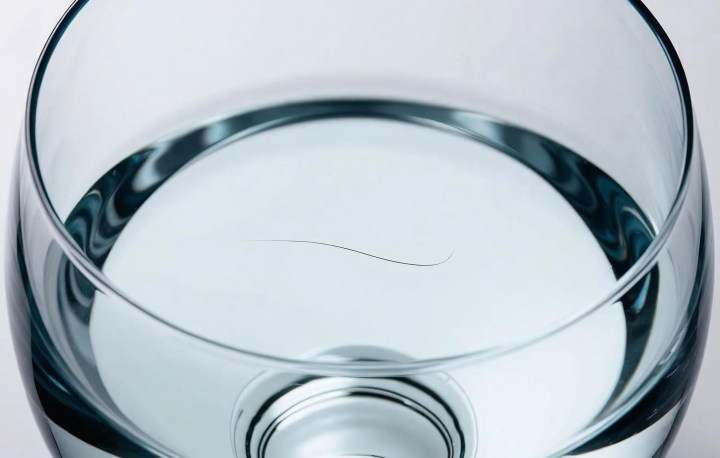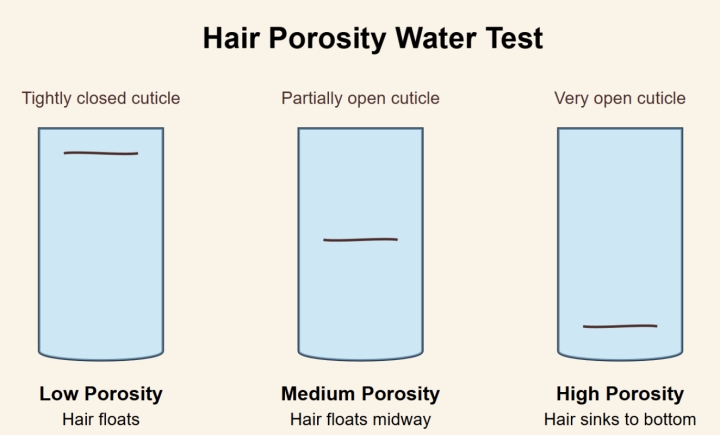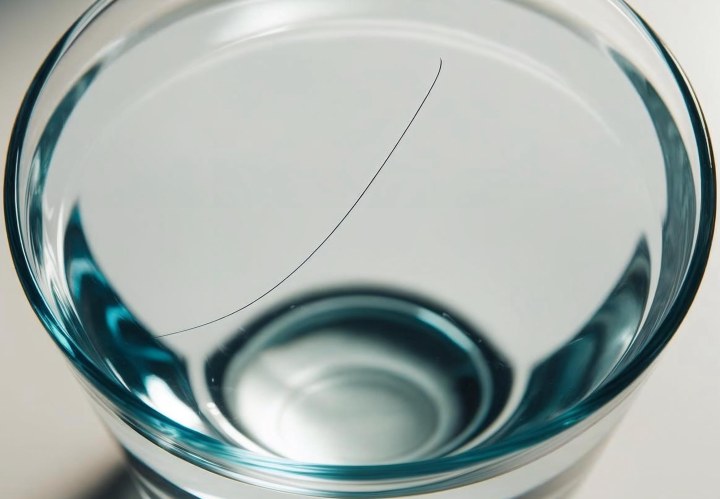Hair Porosity Testing

Q: I've heard that you can test the porosity of your hair by placing a strand of hair in a glass of water. How does this test work, and is it accurate?
A: The water test for hair porosity is a popular at-home method used to determine how well your hair absorbs and retains moisture. While it provides a general idea, its accuracy is debated due to various influencing factors.
How to Perform the Water Test
1. Collect a clean hair strand. Ensure the strand is free from product buildup, natural oils, or conditioner, as these can interfere with the test.
2. Fill a glass with room-temperature water. Avoid using excessively hot or cold water, as this could alter the strand’s reaction.
3. Gently place the hair strand on the water’s surface. Do not push it down. Allow it to settle naturally.
4. Observe for 2-4 minutes. Watch how the strand behaves in the water.

Interpreting the Results
Low porosity: The hair strand remains floating on the surface for several minutes, indicating a tightly sealed cuticle that resists water absorption.
Medium porosity: The strand gradually sinks to the middle, suggesting balanced moisture retention.
High porosity: The strand sinks quickly to the bottom, signaling that the cuticle is highly porous and rapidly absorbs water.
While this test is simple, it’s not always reliable. Several factors can influence the results. Product buildup from styling products, oils, and conditioners can create a water-resistant barrier, making hair float regardless of its porosity.
Natural scalp oils can also repel water, causing an inaccurate assessment. Also, porosity can vary across different sections of your hair, meaning a single strand may not be a representation of your overall hair porosity.

For a more accurate assessment, try these additional methods:
• The slip and slide test: Run your fingers up a single strand of hair from tip to root. If it feels bumpy, the cuticle is raised, suggesting high porosity. A smooth strand indicates low porosity.
• The spray bottle test: Lightly mist a small section of dry hair with water. If the water beads up on the surface, you likely have low porosity. If it absorbs quickly, your hair is highly porous.
• The drying time test: Pay attention to how long your hair takes to air dry after washing. If it dries quickly, it’s likely high porosity; if it takes hours, it’s more likely to be low porosity.
While the water test can provide a rough estimate of your hair’s porosity, it shouldn’t be the sole method used. Combining multiple tests will give you a clearer and more accurate understanding of your hair’s ability to absorb and retain moisture.
©Hairfinder.com
See also: How to analyze your hair